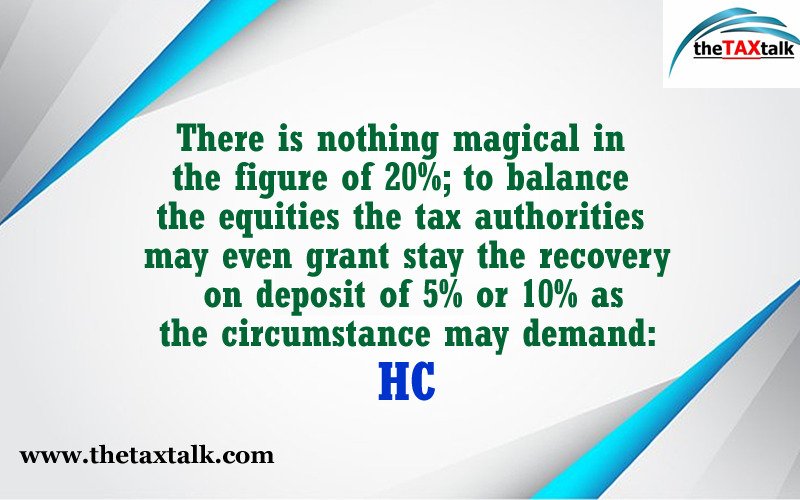![]()
There is nothing magical in the figure of 20%; to balance the equities the tax authorities may even grant stay the recovery on deposit of 5% or 10% as the circumstance may demand: HC
Attachment of bank account for recovery of tax due has has become a regular features. It is necessary to ge the stay granted sk as to avoid the bank account attachment. There are numerous instances where the amount in the bank accounts got blocked due to attachment done by the tax department.
Here is an interesting judgment wherein it has been held that the exercise of discretion to grant stay on IT demand cannot be arbitrary.
The citation of the case is as under :
Harsh Dipak Shah vs. UOI (Civil Application No.: 19804 of 2021)
Let us have our routine short overview:
The AO had made high pitched assessment of Rs 373 crores.
Assessee filed an appeal against the assessment order and applied for a stay on the demand.
However the assessee was asked to deposit 20% of the demand and the stay was rejected.
Hon Gujarat HC while concluding that the exercise of discretion to grant stay cannot be arbitrary and that 20% pre- deposit is not mandatory.
The court made some important observations as under:
1. Section 226 provides discretion to the tax authorities by which they may grant stay conditionally or unconditionally or may even decline to grant any stay.
However, this discretion has to be in a judicious manner and cannot be in an arbitrary or mechanical manner.
2. The AO should apply his mind to the facts and circumstances of the case relevant to the exercise of the discretion, in all its aspects.
AO has to remember that he is not the final arbiter of the disputes involved but only the first amongst the statutory authorities.
3. AO should not act as a mere tax-gatherer but as a quasi-judicial authority vested with the power of mitigating hardship to the assessee.
4. The AO should divorce himself from his position as the authority who made the assessment and consider the matter in all its facets, from the point of view of the assessee at the same time without sacrificing the interests of the Revenue.
5. The tax authorities should not get over zealousness to protect the interest of the revenue.
There is nothing magical in the figure of 20%; to balance the equities the tax authorities may even grant stay the recovery on deposit of 5% or 10% as the circumstance may demand as pre-deposit in case of high pitched assessment such as this case.
6. Authorities need to keep in mind the following:
(i)Prima facie case;
(ii) balance of convenience;
(iii) irreparable injury that may be caused to the assesse which cannot be compensated in terms of money;

